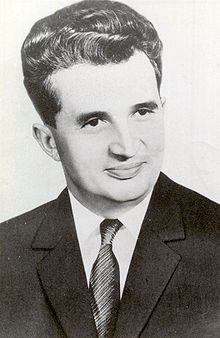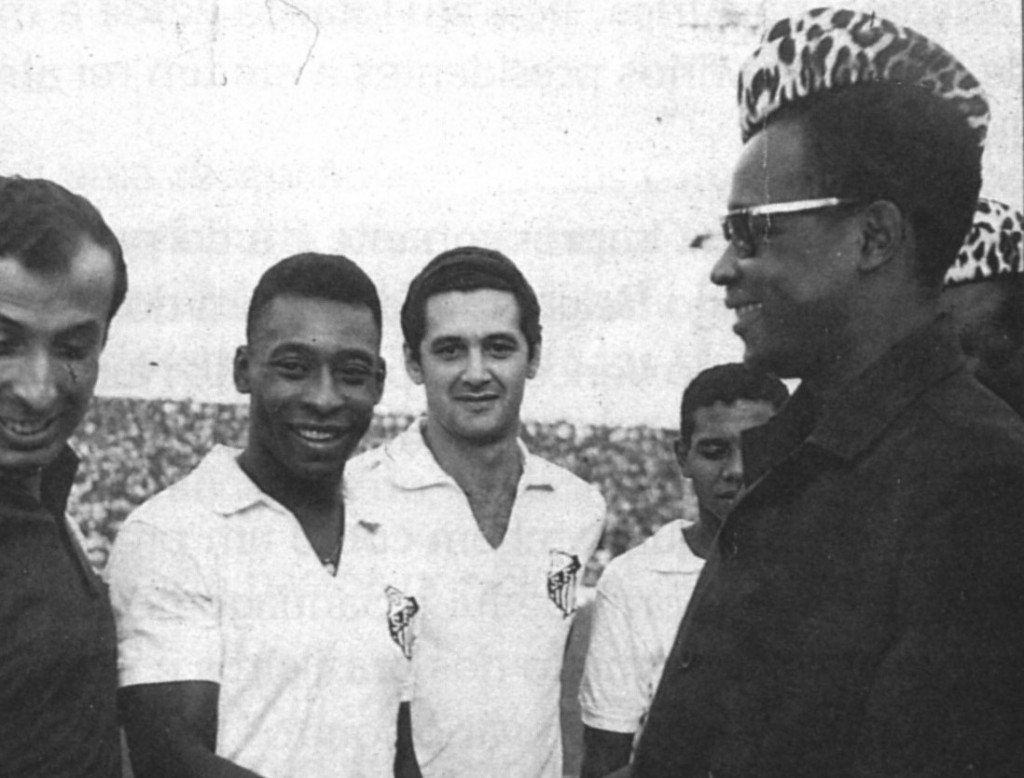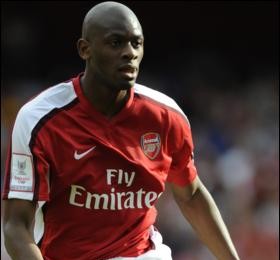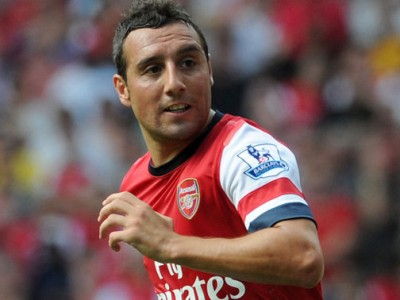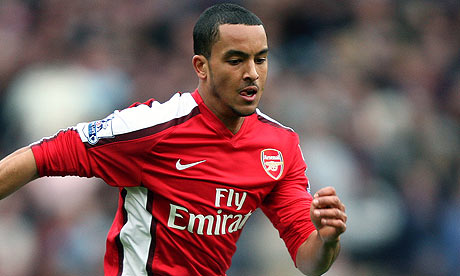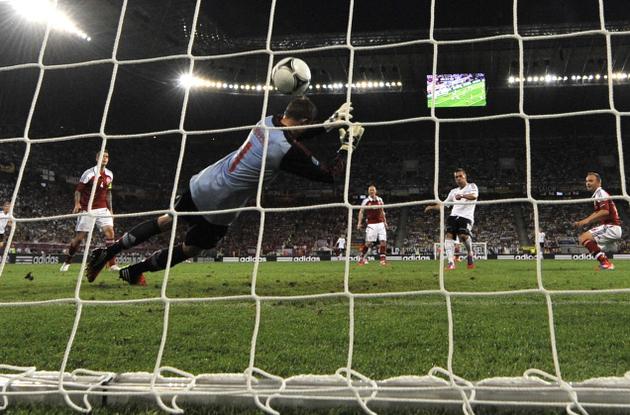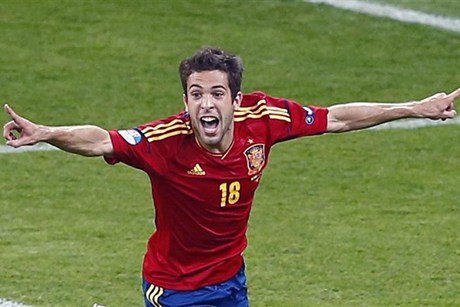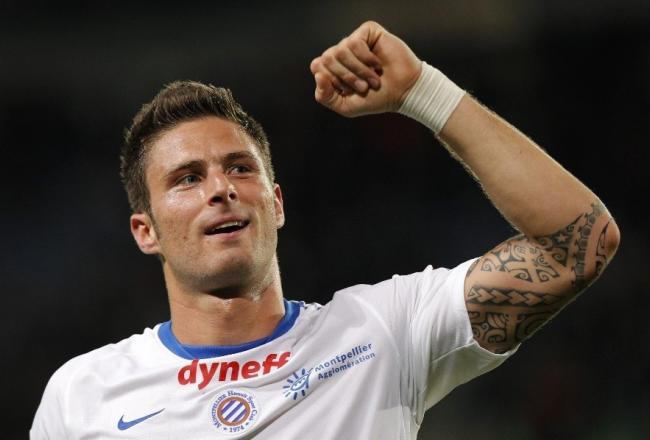[Editor’s note: This is the 2nd installment in the ongoing Dictators and Soccer series. See also the previous article on Mobutu Sésé Seko of Zaïre and subsequent articles on Kim Jong-il and North Korea (or Football, Famine and Giant Rabbits) and Pope Benedict XVI and Vatican City. Stay tuned for Col. Gaddafi next.]
Up until Christmas 1989 when a three-man firing squad executed Nicolae Ceaușescu and his wife Elena after a quickie two hour tribunal, the archetypal Iron Curtain strongman ruled Romania with an iron fist. After getting strafed with bullets, however, the iron fist swiftly went limp, then rigor mortis. And as the title up top suggests, soccer most definitely played its part in the image engine of the autocratic regime.
Ceaușescu served as the General Secretary of the Romanian Communist Party from 1967 to 1989. He loomed larger than life, largely due to his carefully cultivated cult of personality, replete with relentless news propaganda, giant-sized murals and so on. He even nicknamed himself “Genius of the Carpathians,” ”The Great Conductor” and ”The Danube of Thought.” One imagines that someone else bestowed the dubious honorific of “The Idi Amin of Communism.” (To read about the “Mobutu of Soccer Mogul Marketing,” see here.)
No one would accuse Ceaușescu of being a rabid soccer fan, but he spotted the usefulness of rabid devotion in any form and fully intended to bend such to his purposes. Enter the Romanian capital’s soccer powerhouse, Steaua Bucharest (anglicized form of Steaua București). The lyrics of a popular Romanian song, “Poți să fii câine sau poți fi stelist,” epitomized the mantra of the time. Translation, “You can be a dog, or you can be a Steaua fan.” With Ceaușescu as benefactor, Steaua went on a run of consecutive titles and undefeated in 104 straight domestic matches from 1986 to 1989, which blows away anything as piddling as a one-season Premier League “Invincibles” streak. To get to 104, you’re talking multiple and consecutive, which inhabits a whole different plane of non-losing. Curiously (or not), it all crashed to an abrupt halt with Ceaușescu’s 1989 execution.
Ceaușescu sought to legitimize and whitewash the nation state through sport, with the mentality that good PR sweeps human rights atrocities under the rug. If the soccer’s good, people will give you some leeway and even participate in the charade. So, with the best Romanian players at its disposal, as well as opposing managers and referees in its pocket, Steaua went without a loss for three consecutive domestic seasons. Steaua became the first club from Eastern Europe to hoist the European Cup, in 1986, and reached the finals in 1989. Ceaușescu lived long enough to see it, but not much beyond.
To flesh out the dictator a bit, let’s itemize a few of his eccentricities. Aside from the usual nepotism (27 close relatives in the top party and state offices), he and his wife Elena once visited Queen Elizabeth II and stayed at the palace. After shaking anyone’s hand, including the queen, he would wash his hands, OCD style. This was debatably less offensive than their bringing a personal food taster and their own bed sheets, out of distrust. Ceaușescu harbored a bizarre fear of poison-dusted cloth. All his clothes were manufactured by state police under surveillance, worn once and then burned. The purpose of the UK visit was to buy aerospace technology, but when quoted the price, he explained he’d have to pay a large part in yogurt, strawberries and ice cream. Despite the sweet deal, no deal.
If a newspaper mentioned Ceaușescu, no one else but his wife could be named in the same paragraph. And if both he and Elena were mentioned in a paragraph, they had to both be on the same line. Furthermore, each page of a paper had to mention him a minimum of 40 times, with his name in a specialized font. Every telephone manufactured during his reign came standard with bugs for surveillance, and after once receiving a death threat letter, he instructed the secret police to procure handwriting samples of everyone in the country. His presidential parliamentary palace, widely considered one of the greatest eyesores ever, was the second biggest administrative building in the world, after the Pentagon. It has since been transformed into a shopping mall.
In the ’80s, Ceaușescu shut down all radio stations outside the capital and limited TV to a two-hour broadcast on one solitary channel. The two hours part was simply pragmatism. The country battled with foreign debt that caused a trickledown effect characterized by drastic food rations, gas shortages and regular power blackouts.
Oh right, Ceaușescu also ruthlessly persecuted ethnic Hungarians, emptied the treasury and generally held the title of biggest asshole on the block, or bloc.
Returning to how soccer played into the man’s plans, even before Ceaușescu came to power, Romania had a fixed soccer duopoly in Dinamo Bucharest and Steaua Bucharest, supported and financed by the secret police and army, respectively. They had an “arrangement” between them known as the cooperativa. Whenever one needed a win or a specific scoreline in a head to head, the other complied. This arrangement itself transpired against a backdrop of deeply entrenched match fixing elsewhere in the league. Money needn’t exchange hands. If you played one of the top dogs, you obediently lost, or faced the consequences. Needless to say, neither came close to relegation during the ‘60s, ‘70s or ‘80s. Several sources speak of a phenomenon in which teams playing either of the Bucharest teams would concede goal after goal until the manager stepped from the dugout and raised his hand, signaling that the opposition could actually start going for goal.
Threats, intimidation and payoffs ensured that Steaua and Dinamo stayed top. But since the country as a whole was strapped for cash, intimidation of other club owners, managers, players and referees usually did the trick, and at an undeniably cut rate.
A brief aside on Dinamo Bucharest. All the Dinamo/Dynamo teams in the Soviet era had links to the secret police, based on the mother club Dynamo Moscow in Mother Russia. (Think about that next time you taunt supporters of Dinamo Zagreb or Dynamo Kiev, though you’re probably pretty safe with regard to the Houston Dynamo.) Just as Dynamo Moscow essentially reported directly to the KGB, and Dynamos Berlin and Dresden to the Stasi—a terrifying proposition—Dinamo Bucharest grabbed the proffered appendage of the brutal Securitate and the two went hand in hand.
When Ceaușescu bestowed his allegiance on Steaua Bucharest, it spelled the decline of Dinamo Bucharest, which had ruled supreme in the ‘70s. In the early 1980s, however, the Ceaușescus became directly involved in running Steaua, shifting the balance of power decidedly to the army team. Nicolae and Elena Ceausescu’s eldest son, Valentin, finagled his way into the organization and served as the club’s unofficial president (whether they wanted it or not). The backing of Ceaușescu gifted Steaua a powerful upper hand and fortunes swapped soon after.
With the army and the dictator as benefactors, many of the best young players joined Steaua for the many advantages of the club—not only better conditions and luxuries like television sets and video recorders but also a quite handy exemption from compulsory military service. And those players who didn’t come of their own free will came anyway. Steaua “borrowed” star player Gheorghe Hagi from FC Sportul Studențesc in 1987 and never returned him, despite his home club’s opposition. In 1988, Steaua didn’t even bother borrowing. They plucked Gheorghe Popescu from FC Universitatea Craiova with neither the club’s nor the player’s consent.
Also in 1988, Steaua and Dinamo faced off in the Romanian Cup. By this point Steaua had long been the dictatorship’s pet team. Tied 1-1 in the 90th minute, Steaua scored but the goal was disallowed as offside. Outraged, and perhaps slightly stunned at the referee’s audacity, Valentin Ceaușescu refused to play on and ordered his team back to the locker room. After they’d left the field, the referee gave the game and the trophy to Dinamo, by virtue of default.
The Minister of Sport instructed the media to report nothing. The next day, the referee recanted, declared the winning goal valid and Steaua got the trophy. All video of the match was destroyed. The referee and the offsides linesman were fired.
A happy ending for some, though probably not the referee and linesman, who likely have a few permanently damaged fingers, kneecaps or both.
Perhaps Ceaușescu’s small potatoes hometown village team Olt Scornicești best illustrates the state-soccer corruption connection and the absurdity and the totality of power possessed by the dictator. Adrift in the fourth tier of Romanian football in the late ‘70s, the team earned three promotions in three consecutive years. On the final day of the season before promotion to the top flight, the team had to beat Electrodul Slatina by a goal margin equal to or more than Flacara Moreni. Erroneously informed that Flacara Moreni were winning 9-0 (as opposed to the actual 3-0), with more than a slight touch of overkill, Ceaușescu’s team upped the ante and won 18-0. No use taking chances when goals come so easily. Finally, the team resembled one befitting the standing of the sitting dictator, order restored to the universe of the bizarro world. Furthermore, Ceaușescu built a 30,000 capacity stadium for Scornicești, despite the village being a third that size.
Beyond this classic, ridiculous case of miscommunication, the episode registers as a vintage example of sports corruption in the Soviet bloc. No phone line connected the two villages where Steaua and Flacara Moreni were playing, so men with hand radios stationed at intervals between the grounds relayed and garbled the score like Chinese whispers or plain old Telephone. (With all phones bugged, who dropped the ball on getting these villages on the telephone grid? It’s an issue of national security, after all.) After the referee blew for full-time and the teams filed off the pitch, he actually brought the teams back out for enough extra-special injury time in order for Olt Scornicești to bang in the goals they needed and rack up a monstrous tally to promotion. Scornicești scored once in the first half, 17 times in the “second half.”
(Sidenote on Scornicești coach Florin Halagian. He also employed such heartwarming antics as kicking underperforming players off the bus at away matches to find their own way home.)
By the end of the ‘80s, the jig was up for Nicolae and Elena and in December 1989 a populist uprising threw off the oppressive Ceaușescu regime. In the resulting proto-Saddam trial, Ceaușescu denounced the tribunal, trying to the last to intimidate, denying the court had any authority to try him for anything. After a hurry-up two hour trial and the foregone guilty verdict for genocide of ethnic Hungarians, corruption and more, he and Elena were shot. The moment, however, did not get recorded for posterity, even though the show trial was televised. One imagines it was some weird video format, anyhow, like a Betamax made by the folks at Yugo.
Apparently hundreds volunteered for the firing squad, but only three lucky comrades got the job, comrades so eager that they started firing as soon as the ex First Couple touched backs to wall. The video cameras hadn’t had time to start rolling before it was all over. Sadly, this dictatorial snuff film must ever remain incomplete.
And now Cluj is the nation’s team, with a definite chance of qualifying for the knockout stages of the Champions League. Poor Steaua. Dictators and their passing whims can be so quixotic, especially when they get executed.
For anyone interested, Scornicești long ago resettled back into the fourth tier of the Romanian leagues. Romanian match fixing apparently remains robust, but after the fall of the dictatorship, some things at least returned to normal.
Dictators and Soccer/Football:
Mobutu Sésé Seko (Zaïre)
Nicolae Ceaușescu (Romania)
Kim Jong-il (North Korea)
Pope Benedict XVI (Vatican City)
https://twitter.com/tyrannosoccer
https://www.facebook.com/DictatorsAndSoccer
Copyright © 2012

